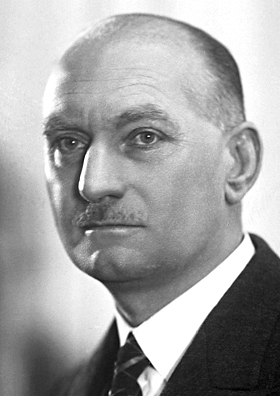Why was Corneille Heymans Awarded the Nobel Prize for Physiology or Medicine in 1938?
Corneille Heymans: Unveiling the Secrets of Respiration and Blood Regulation
In 1938, the Nobel Prize for Physiology or Medicine was awarded to Corneille Heymans, a Belgian physiologist renowned for his pioneering research on respiration and blood regulation. Heymans’ groundbreaking discoveries in the field of respiratory physiology and his innovative investigations into the role of chemoreceptors in blood pressure regulation played a pivotal role in his recognition by the Nobel Committee. This article explores the remarkable achievements that led to Heymans’ esteemed accolade and sheds light on the lasting impact of his groundbreaking work.

Revolutionizing Respiratory Physiology:
Corneille Heymans’ research focused on unraveling the intricacies of respiratory physiology, particularly the mechanisms that control respiration. In the early 1930s, he conducted pioneering experiments that demonstrated the existence of chemoreceptors in the carotid bodies, specialized structures located in the neck region that are responsible for sensing changes in blood composition.
Heymans discovered that these chemoreceptors played a crucial role in regulating respiration by monitoring the levels of oxygen and carbon dioxide in the bloodstream. His investigations not only provided key insights into the physiological processes underlying breathing but also offered a foundation for understanding respiratory disorders and the development of therapies to address them.
Decoding Blood Pressure Regulation:
Heymans’ contributions extended beyond respiratory physiology to the field of blood pressure regulation. In the late 1920s, he embarked on a series of groundbreaking experiments that explored the relationship between blood pressure and the peripheral chemoreceptors located in the aortic arch and carotid bodies.
Through meticulous experimentation, Heymans demonstrated that stimulation of these chemoreceptors resulted in increased blood pressure. This discovery challenged the prevailing belief that blood pressure was solely controlled by the central nervous system. Heymans’ work opened up new avenues of research into the intricate mechanisms governing blood pressure regulation and paved the way for advancements in understanding cardiovascular physiology and the treatment of hypertension.
Significance and Legacy:
Corneille Heymans’ Nobel Prize win in 1938 highlighted the profound impact of his research on respiratory physiology and blood pressure regulation. His investigations into chemoreceptors and their role in these processes transformed our understanding of these fundamental physiological functions and paved the way for further exploration.
Beyond the Nobel Prize, Heymans’ legacy can be seen in the ongoing advancements and applications of his discoveries. His work has contributed to the development of diagnostic tools and therapeutic approaches for respiratory disorders and hypertension. Additionally, Heymans’ findings have provided valuable insights into the intricate interplay between the cardiovascular and respiratory systems, informing the development of treatments for various related conditions.
Corneille Heymans’ Nobel Prize in Physiology or Medicine in 1938 celebrated his groundbreaking contributions to respiratory physiology and blood pressure regulation. His discoveries regarding chemoreceptors and their role in these processes revolutionized our understanding of respiratory control and the regulation of blood pressure.
Heymans’ innovative research continues to shape the field of physiology, providing crucial insights into the mechanisms underlying respiratory disorders and hypertension. His work serves as a testament to the transformative power of scientific inquiry and the lasting impact it can have on medical science, ultimately improving the lives of countless individuals worldwide.




